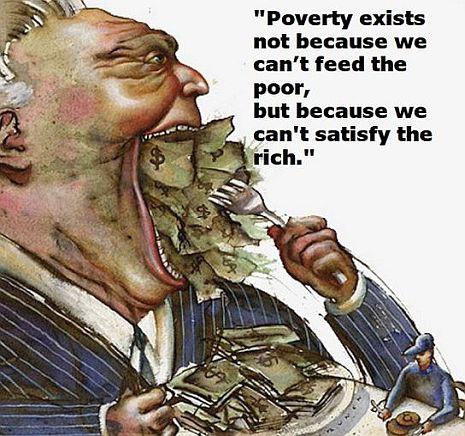Money

Like all fun things, money is great in moderation but can easily become addictive when consumed in excess.
Whereas other spiritual movements try to sell you solutions to your problems in the form of supplements and seminars, metaculture encourages you to buy nothing and find healing within yourself. While not anti-capitalist, metaculture encourages money moderation and a focus on Gross National Happiness over GDP.
"Money often costs too much." -Ralph Waldo Emerson
See Capitalism and Economics for more money stuff. The Materialistic page addresses the symptoms of consumerism and monetary addiction.
Ideas are Free
The metaculture wiki and all related educational content produced for it will always be free and public domain. Anyone is free to copy and remix the wiki pages into articles, books, forum posts, educational materials, etc. without asking permission. The goal is to spread good ideas, not profit from them.
Keep in mind that stock photo images do require a license so don't copy those!
Opposing Greed and Grift

metaculture is morally concerned with the proliferation of grift, especially in spiritual spaces (aka Conspirituality). There are too many wellness influencers peddling pseudoscientific snake oil and supplements in order to supplement their incomes. Multi-level marketing schemes are a scourge upon the churches and Facebook groups that they prey on. When it is not possible to make them illegal, they need to become taboo.
Lies are free. Anyone can make stuff up, but it take effort and funds to do real research and fact-checking. Opposing misinformation is inevitably more difficult than creating it.
Grift and propaganda undermines our trust in institutions of democracy and capitalism. It takes resources away from those who would use it for happiness and uses it to feed an endless monetary addiction. It cannot be tolerated.
New taboos are needed to prevent common abuses of capitalism that are difficult to address legally, like tax avoidance, creative usury, and rent-seeking.
Diminishing Returns on Happiness
After income reaches the point where you can achieve relative comfort and freedom, the amount of happiness you get from earning more money steadily decreases. There was a popular study in 2010 by Daniel Kahneman that suggested happiness plateaus around $75,000, or the point where average Americans can afford a middle class lifestyle (at least in the Midwest). Improved methodology in follow-up research shows that happiness does actually continue to increase, but the rate of increase slows. Once you are earning millions, the extra happiness you get from more income is marginal. On average, the wealthiest are only slightly happier than the average person.[1][2][3]
This is the reason that progressive taxation is optimal from a utilitarian standpoint. High taxes hurt rich people much less than they do poor people.
Monetary Addiction
See monetary addiction for an analysis of the addiction model of income inequality and consumerism.
Honest Fundraising Alternatives
In order to fund future operations, it will eventually be necessary to raise money. Some common funding methods will not be considered, and some novel approaches will be used that combine culture jamming, satire, and science to create products that inherently expose grift, undermine pseudoscience, and advance the cultural conversation.
Based on the separation of doctrine and institution, these fundraising ideas should be implemented by independent entities looking to promote the goals and values of metaculture. They are offered to anyone who thinks they can form a viable business model based on them, or thinks they might work with the mission of their congregations or nonprofit organization.
No Third Party Sponsors
Third party sponsorship and product promotion will be avoided to prevent any perceptions of bias or influence.
No Begging for Money
Begging for money is beneath the dignity of a deity and it is weird that omnipotent beings rely so heavily on this tactic. It's also weird that they don't pay taxes.
metaculture will operate as a for-profit business that is self-funded through product lines that reinforce its values. It will pay its taxes in full, as any good citizen should. This approach is more honest and transparent than the ways most religious institutions are currently funded.
Crowdfunding for individual projects is not ruled out, but it must be for a specific proposal and not a general operating fund.
If there are benefactors that make unsolicited offers to help with hosting costs or marketing, these won't be turned down, but they will never be solicited.
Self-Supporting Community Centers
Religious institutions create community centers that serve a number of vital and beneficial functions that could be self-funding rather than relying on donations. Day care, education, wellness and exercise classes, co-working space, coffee shops, etc. can all be operated from these community spaces. These are businesses that reinforce the values of the community, and they can be priced on a sliding scale to make them available to all. In a capitalist society, it should not be taboo for a community organization to fund itself through a solid business model instead of donations. But, a true spiritual community should always be accessible to everyone regardless of income. It is possible to use a mix of fundraising and profit-driven business to create a sustainable framework for this.
Setup a coffee station and some desks, and young people will happily use church facilities as coworking spaces. This can easily drive membership and donations to create sustainable third places that don't depend on worship services to bring people in.
Since metaculture advocates the separation of doctrine and institution, any secular institution that wants to start such a community center based wholly or partially on the model provided by this wiki, you are free to do so without any worry about trademark, copyright, or other IP-based concerns. Everything in the wiki is public domain.
Honest Placebos
When the time comes that we must inevitably enter the supplements game like every other spiritual movement, they will be Honest Placebos.
Secular institutions and other organizations can get their own branded placebo fundraisers. These are a fun way to do community outreach, start conversations about health, psychology, pseudoscience and the grift economy, and raise a little money for your organization in the process.
See The Placebo Store for details.
Monetary Addiction Treatment Centers
To confront the growing problem of monetary addiction among the millionaire and billionaire class, specialized treatment programs need to be developed help these poor lost souls find happiness.
Have you had all of the success in life but still feel empty? Have you worked your way to the top only to find that the only thing you know how to enjoy is work? You may be suffering from monetary addiction. But don't worry--we're here to help!
Our customized 12-step program will help you restore your sense of altruism, refocus your mind on happiness over acquisition, and relinquish the burden of your hoarded wealth while helping to fund good causes.
Is this treatment cheap? If it was, it wouldn't be effective! The high price tag is part of the cure!
Holistic Money Management
More realistically, there is a valid business model for ethical investment strategies that could be expanded with a more holistic vision. Psychedelic therapy combined with wealth management advice that promotes developing a vision for how you want your wealth to benefit society, and creating investment strategies, altruistic outlets, and personal lifestyle makeovers to realize that vision. A service that helps the disconnected rich to reconnect with their communities and their shared humanity, rather than another boutique exercise in narcissistic pseudo-spirituality and virtue signaling.
Empathy Boot Camps
"Empathy Boot Camps" could be created to provide a more realistic version of the "undercover boss" experience for any wealthy person wanting to understand the impact of their decisions on the hundreds or thousands of people who live with the wages and policies they set. Make them actually feed and house themselves for a month or six on the wages they pay. Make them do the work they ask others to do for those wages. If it wasn't staged, it could be enormously effective. Instead of working in your own company where everyone knows you're just the CEO wearing a fake mustache, work in a related industry where you can do a similar job, but actually have no authority. It can also help those with inherited wealth learn the value of an honest day's work, or those who got rich in their younger days remember what it was like again.
Rich people will pay tens of thousands to go on boutique self-help retreats and seminars. Offer them an experience that is guaranteed to change their lives and they will gladly make you rich, too.
Pod of Gold
At the end of the rainbow is a wealth of podcast content to help change your perspective on money and capitalism.
- Money 2.0: Emotional Currency
- Money 2.0: Rewrite Your Money Story
- Money 2.0: Why We Bust Our Budgets
- Money 2.0: The Rich and the Rest of Us
- Money 2.0: Let’s Go Shopping!
Monetized Videos
Enjoy these videos and earn their creators a little bit of cash.
No Money in Music
Thanks to streaming, the ability to turn music into money has been severely hampered. While many will continue to make music out of love, people make cooler music when they are able to make a living out of it. Live concerts can only be so much of a substitute, due to temporal and budgetary limitations that prevent most people from attending more than a handful each year.
Apparently choosing YouTube over Spotify can get more money into the pockets of artists, but no matter what you do, you are more likely to enrich a tech billionaire than a musician.